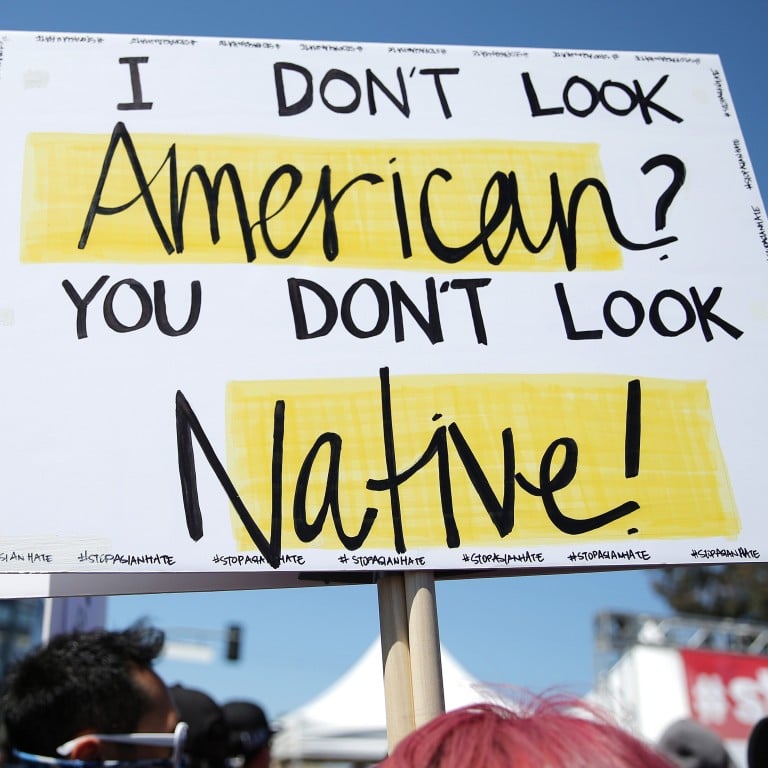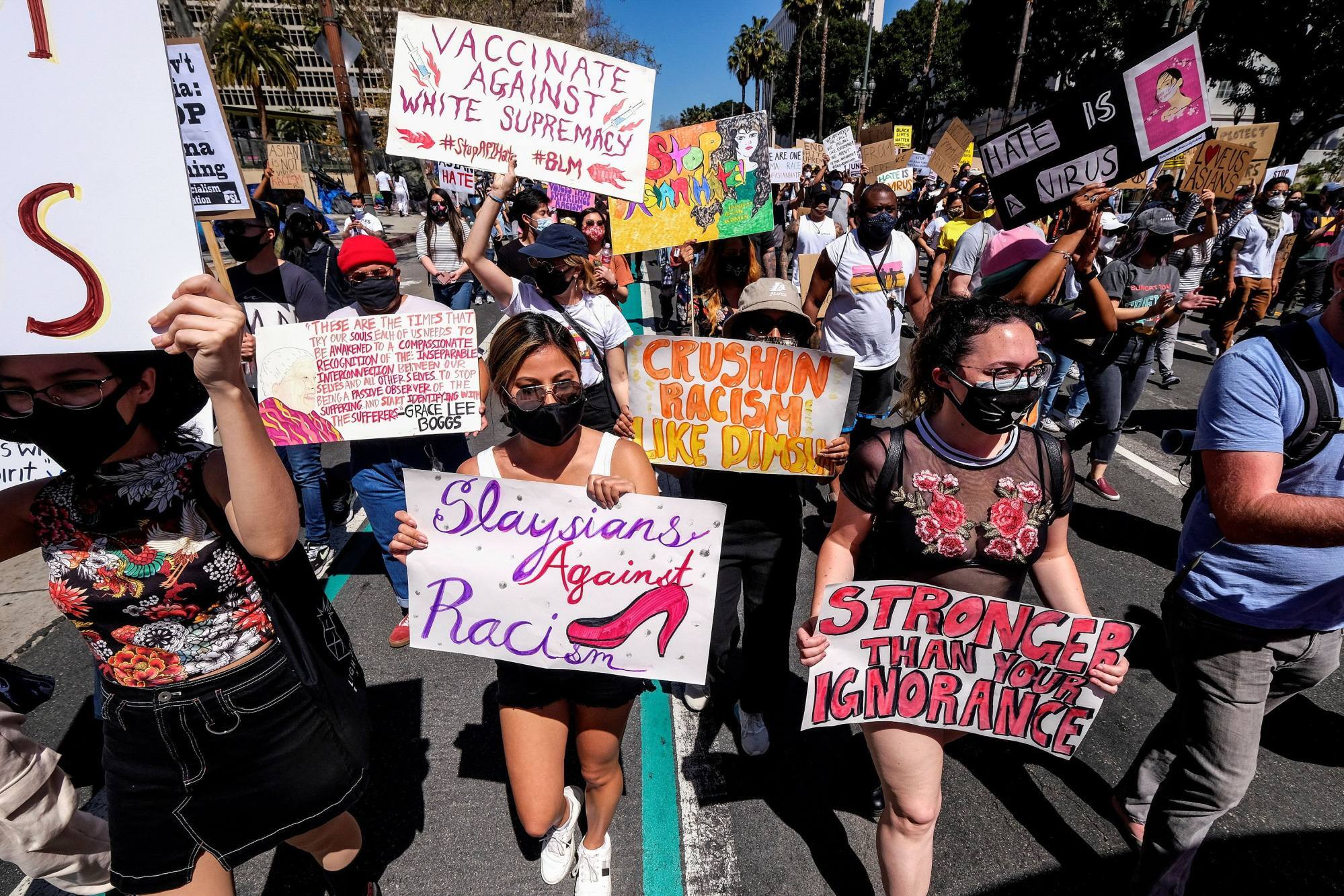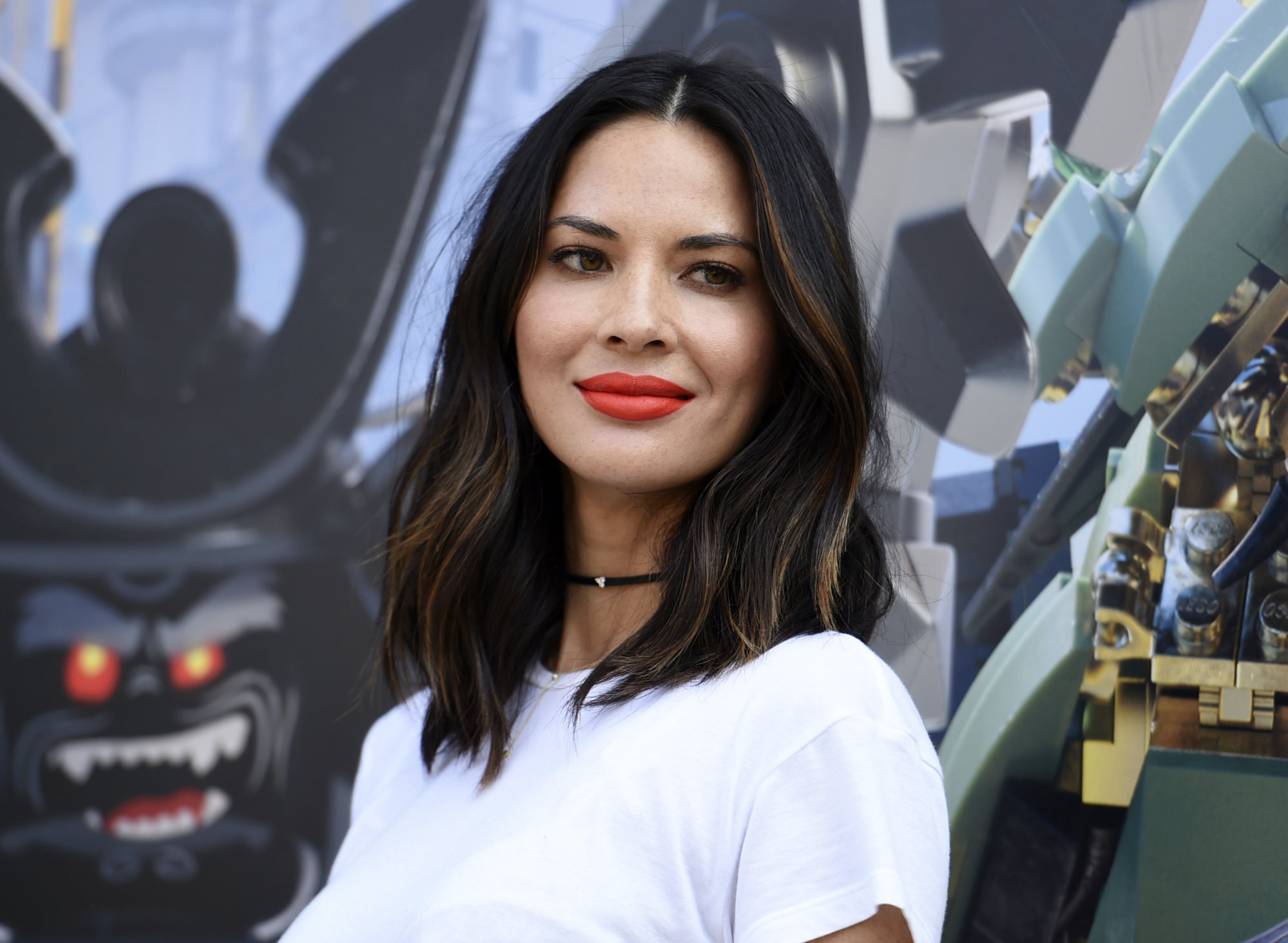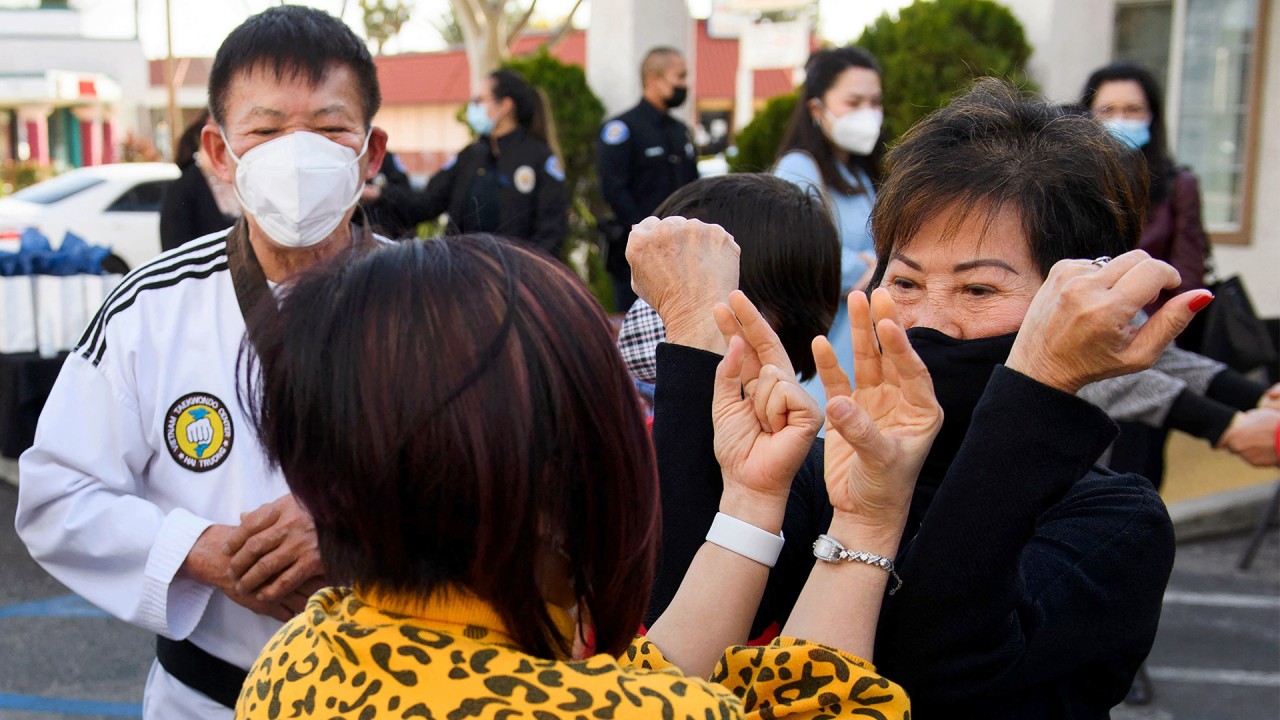
Hundreds march in Los Angeles’ Koreatown as part of ‘Stop Asian Hate’ rallies across the United States
- Since coronavirus shutdowns began last March, thousands of Asian Americans have faced racist verbal and physical attacks
- Experts say the hatred has been stoked by misplaced blame over the coronavirus pandemic and the inflammatory rhetoric of former US President Donald Trump
Hundreds of demonstrators gathered in Koreatown on Saturday for a unity rally and march down Olympic Boulevard to demand an end to the surge in anti-Asian hate and violence, including the Atlanta-area killings earlier this month that have stoked fear and outrage in the community.
Drums and chants filled the air as demonstrators marched and lifted signs saying, “#Stop Asian Hate” and “Enough is enough.”
The event was part of a national day of action promoted by the ANSWER coalition, with similar rallies taking place in other cities in California and across the US, including Atlanta, Boston, Chicago, Detroit, Honolulu, Philadelphia, Portland, Oregon, Queens in New York City and Seattle.

At the Los Angeles Koreatown rally, community leaders, local politicians and activists shared emotional stories about being bullied, scapegoated, discriminated against and treated like they are outsiders or something less than American. Many spoke out against the alarming increase in hate crimes against members of the Asian American and Pacific Islander communities during the pandemic and demanded government action to stop the racist attacks.
Friends Christina Huynh, 39, and Carolyn Dao, 32, drove to the rally together from Orange County after learning about the event on social media from celebrities Kelly Hu and Olivia Munn.
“I’m sick of all the hate — the entire mentality of blaming the new group,” said Dao, a psychology student at Cal State Long Beach who is from Garden Grove. “It’s sickening to see people go after our most vulnerable.”
Dao said her breaking point was the killing of eight people, six of them women of Asian descent, in the Atlanta area earlier this month. Cherokee County Sheriff’s Captain Jay Baker told reporters that the man arrested in connection with the killings was having “a really bad day” and had blamed “sex addiction,” not racism, for the massacre.

Dao felt helpless, and enraged by the comments that seemed to sympathize with the suspect rather than the victims.
“It being written off as a ‘bad day,’ that’s what did it for me,” Dao said.
Baker was later removed as spokesman for the case after it emerged that a Facebook page appearing to belong to him promoted sales of an anti-Asian T-shirt that blamed China for the coronavirus crisis.
“I’ve experienced racism my whole life but I’ve just kept it to myself,” said Dao, whose parents came to the U.S. as refugees from Vietnam. “I was taught to keep my head down, to not make waves.”
After the Atlanta shootings, how Asian-Americans can help stop the hatred and discrimination
Another rally was staged in downtown Los Angeles and in West Hollywood. Crowds gathered at La Cienega and Santa Monica boulevards, holding signs, chanting and cheering as cars passed by.
Since coronavirus shutdowns began last March, thousands of Asian Americans have faced racist verbal and physical attacks or have been shunned by others, according to a recent report by Stop AAPI Hate. Anti-Asian hate crimes have soared in Los Angeles and other major cities. Official statistics capture only a fraction of the incidents, because many go unreported.
Experts say the hatred has been stoked by misplaced blame over the pandemic and the inflammatory rhetoric of former President Donald Trump, who repeatedly called the disease the “China virus” and “Wuhan flu.”
Dao said the attacks have brought a lot of intergenerational divisions within families over how to respond, “and my family’s not exempt from that.” But she hopes that just seeing people like her in the streets raising their voices will inspire others to speak out too.
Huynh, who is also Vietnamese American, said she attended the Koreatown rally to give voice to the often unspoken “fear, anger and sadness, especially for our older generation.”
She said her grandmother and father have been assaulted in the past “but they didn’t report it to the cops because they don’t want to be an inconvenience. We’re always told, ‘Don’t cause trouble.’”
“Well, I can’t be silent anymore,” Huynh said. “I felt like I needed to speak out for those who either can’t or won’t.”


